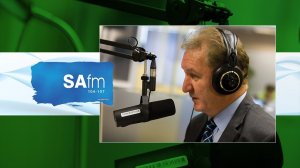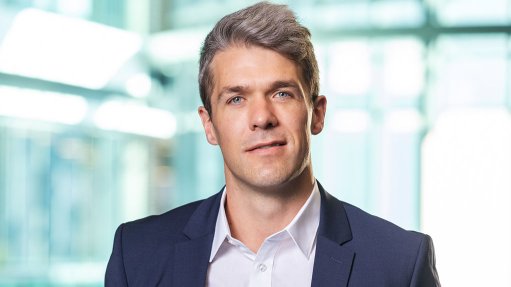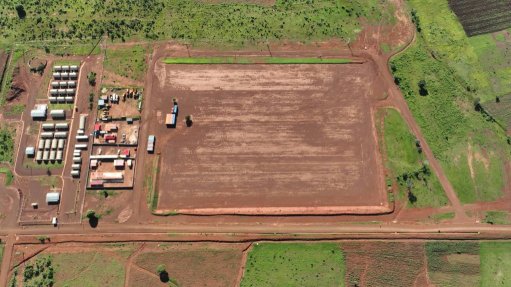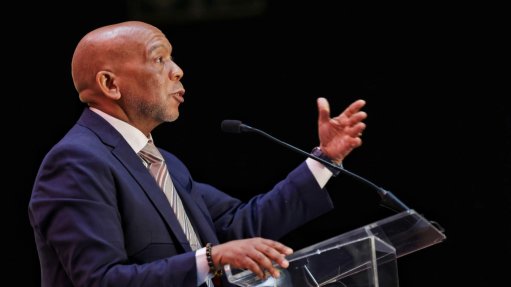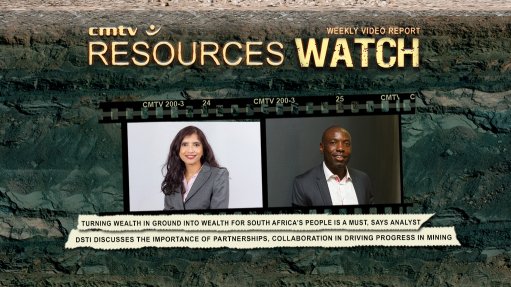On-The-Air (07/06/2019)
Every Friday, SAfm’s radio anchor Sakina Kamwendo speaks to Martin Creamer, publishing editor of Engineering News and Mining Weekly. Reported here is this Friday’s At the Coalface transcript:
Kamwendo: Great news for South Africa is that manganese, which we host in such abundance, is edging its way into the growing electric vehicle (EV) market.
Creamer: We always thought that it was going to be cobalt and that the Democratic Republic of Congo (DRC) just had it in the bag, while the whole world would have to get the cobalt for EVs not from South Africa, but Africa, at least. But now, because of the insecurity of the DRC, the fact that the people who use this don’t like one source to dominate and the ethical issues around the way they mine in the DRC, including child labour, they are swinging to other metals.
One of the metals they are going to give a chance to race for is manganese. That is fantastic news for South Africa because we host this in quality abundance in the Northern Cape. If we can get into the EV market, it is going to be of huge benefit for the offtake of export of manganese. We are already the biggest exporter in the world – we need that direct offtake.
So, currently, a South African company that has been in operation for 45 years, in what we call Mbombela, previously called Nelspruit, is producing an electrolytic metal from manganese and it is trying to get into this hi-tech area. They are in a race between nickel, aluminium and cobalt, but it looks like there is a big chance that South Africa’s manganese will be able to get into the EV market.
If it gets into the EV market, it means that it is in the car and there are 80-million cars produced a year, but not that many in EVs yet. Also, it will mean that it will go into the battery in your home because you would want to store the electricity. That will be a fantastic market for us.
Kamwendo: This week’s packed Junior Indaba pleaded with government to kickstart junior mining or face significant decline in mining as a whole.
Creamer: Junior mining got a bit of help last year when government said that juniors didn’t have to have all the red tape associated with the bigger companies that are in the industry already; they are already developed mines.
Therefore, as junior miners, you are still in the exploration area, we want to roll out a bit of a red carpet for you, because this is a difficult area, it is high risk and high reward potentially. But, this year, the junior miners asked: What has really changed? We have had a bit of a red-tape removal, but there are also limitations of what size you can be to do be regarded as a junior miner. They pleaded with Mineral Resources and Energy Minister Gwede Mantashe to get rid of more red tape.
They are saying that it is just not moving. If we don’t move now, it is going to be like 15-years before we can create a new mine. If we don’t create new mines, the existing mining industry will just continue to decline. You have got to have exploration behind your mines, otherwise they just disappear.
Kamwendo: A South African company has raised R160-million in investment for a new gas project, in the Free State.
Creamer: When the gold miners used to drill for gold in the Free State, they used to pass a lot of gas, they didn’t worry about the helium. Now, all of a sudden, helium is in demand in the world and people are saying: let’s turn that to account. But, the most interesting thing about this is that the R160-million has not been raised in South Africa, but on the stock exchange, in Australia.
The primary listing of the particular company concerned, Renergen, is in South Africa, but it didn’t seek to raise that equity capital in South Africa; it went to Sydney and has been highly successful. So, you have got Australians coming in and they are betting on the successful outcome of this enterprise. It shows a lot of confidence in us. Renergen started trading this week in Australia and the premium just shot up, the share price just rose 27%, which means that people are keen on this helium because it is used in medical, computers and communication.
They see a chance to invest in South Africa and lift what is happening in Virginia, in the Free State, which will be good for us as well, and it’s all Australian money.
Kamwendo: Thanks very much. Martin Creamer is publishing editor of Engineering News and Mining Weekly.
Article Enquiry
Email Article
Save Article
Feedback
To advertise email advertising@creamermedia.co.za or click here
Press Office
Announcements
What's On
Subscribe to improve your user experience...
Option 1 (equivalent of R125 a month):
Receive a weekly copy of Creamer Media's Engineering News & Mining Weekly magazine
(print copy for those in South Africa and e-magazine for those outside of South Africa)
Receive daily email newsletters
Access to full search results
Access archive of magazine back copies
Access to Projects in Progress
Access to ONE Research Report of your choice in PDF format
Option 2 (equivalent of R375 a month):
All benefits from Option 1
PLUS
Access to Creamer Media's Research Channel Africa for ALL Research Reports, in PDF format, on various industrial and mining sectors
including Electricity; Water; Energy Transition; Hydrogen; Roads, Rail and Ports; Coal; Gold; Platinum; Battery Metals; etc.
Already a subscriber?
Forgotten your password?
Receive weekly copy of Creamer Media's Engineering News & Mining Weekly magazine (print copy for those in South Africa and e-magazine for those outside of South Africa)
➕
Recieve daily email newsletters
➕
Access to full search results
➕
Access archive of magazine back copies
➕
Access to Projects in Progress
➕
Access to ONE Research Report of your choice in PDF format
RESEARCH CHANNEL AFRICA
R4500 (equivalent of R375 a month)
SUBSCRIBEAll benefits from Option 1
➕
Access to Creamer Media's Research Channel Africa for ALL Research Reports on various industrial and mining sectors, in PDF format, including on:
Electricity
➕
Water
➕
Energy Transition
➕
Hydrogen
➕
Roads, Rail and Ports
➕
Coal
➕
Gold
➕
Platinum
➕
Battery Metals
➕
etc.
Receive all benefits from Option 1 or Option 2 delivered to numerous people at your company
➕
Multiple User names and Passwords for simultaneous log-ins
➕
Intranet integration access to all in your organisation



